Camps, councils help cities connect with youth
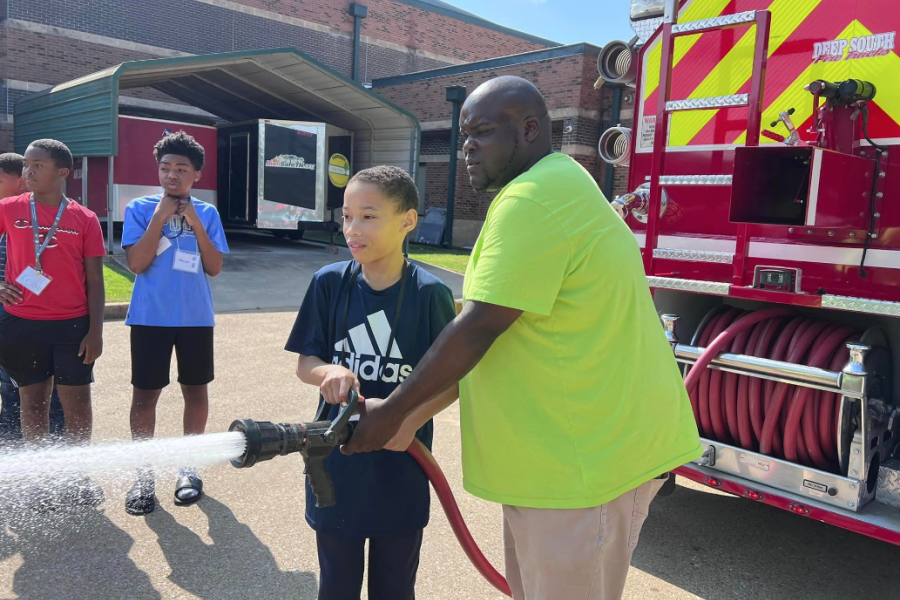
By KATE COIL
TT&C Assistant Editor
Municipalities across Tennessee are finding unique ways to include youth in local government while educating them about municipal career paths.
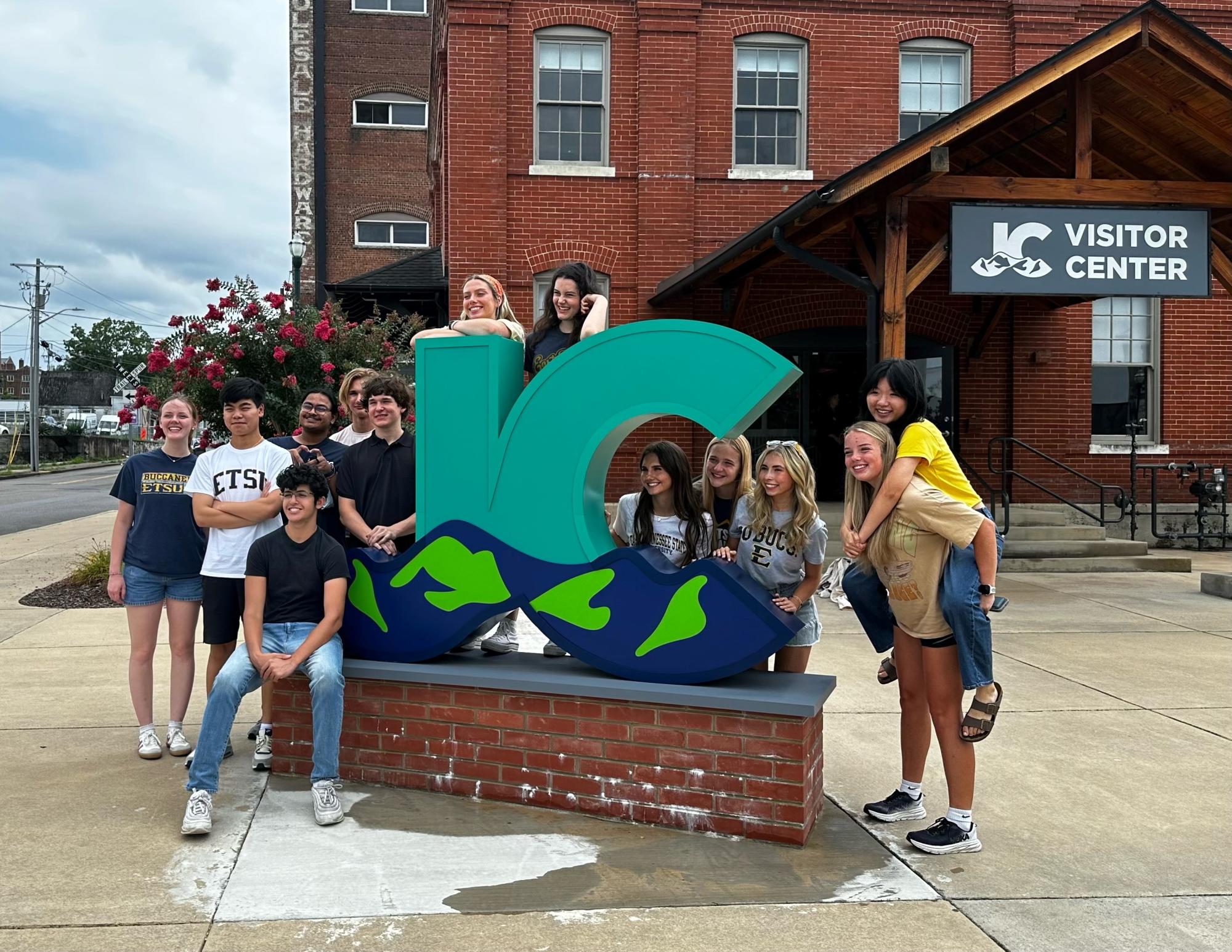
According to the International City/County Manager’s Association (ICMA), public trust in local government is at an all-time low. This is especially true among youngsters, who are often overlooked in the public engagement process.
In addition to creating politically engaged, long-term residents of a community, involving youth in local government can help grow the next generation of employees, bridge gaps between youth and officials, and improve the quality of life for residents.
Mayors in communities with youth outreach programs have noticed results. TML 1st Vice President and Bolivar Mayor Julian McTizic created Camp Bolivar four years ago, a day-camp that gives middle school students a chance to see what happens behind the scenes in government.
“Camp Bolivar is not just another program,” McTizic said. “It is an investment in our youth and our future, an investment that fosters growth and strengthens our community for generations to come.”
Columbia also created the Mayor’s Youth Council (CMYC) four years ago. Mayor Chaz Molder said the council has engaged city officials with future leaders.
“Over the past four years, I’ve seen firsthand how these students bring fresh perspectives and innovative ideas to the table and have a passion for making a difference,” Molder said. “It’s inspiring to witness their growth as they gain hands-on experience with the inner workings of city government and develop leadership skills that will serve them well into the future. Encouraging youth involvement in civic affairs is one of the best investments we can make in Columbia’s future, and I’m proud to support the next generation of leaders who will continue to shape our community."
Johnson City recently created its own youth council, and Mayor Todd Fowler said city leaders are excited to involve the council in planning for future growth.
“Our growth management plan is a 20-year plan,” Fowler said. “That’s not for us. That’s for our youth. We need them to have a voice as we shape the future of Johnson City. And if we’re lucky, maybe they’ll be the ones putting that plan into action.”
GETTING INVOLVED
In Columbia, the council empowers local high school students by fostering leadership skills, educating them about local government, and encouraging involvement.
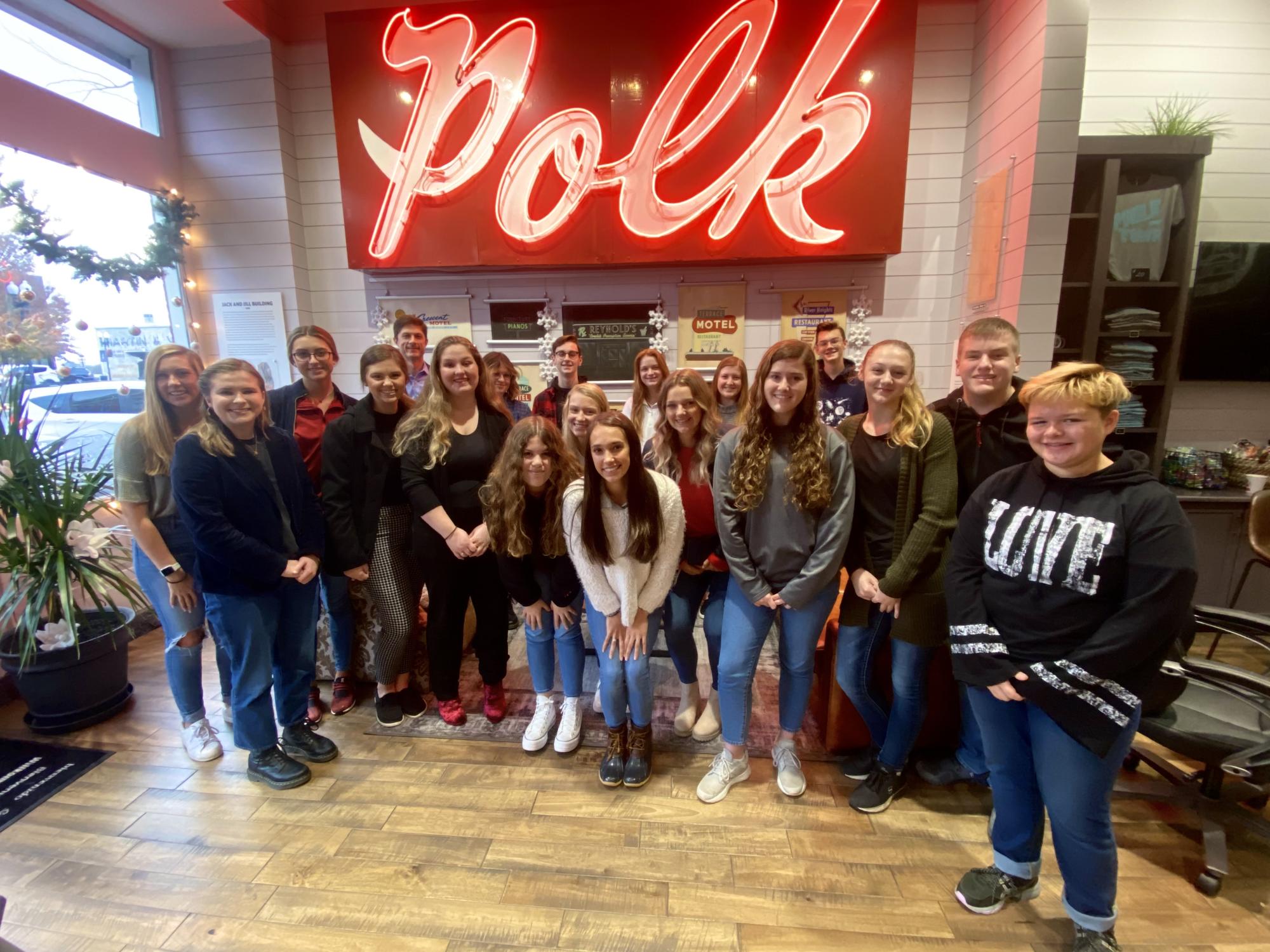
“The city continues to support the CMYC because it serves as a vital bridge between youth and local government by providing future leaders with a platform to voice their ideas, concerns, and perspectives,” said Hanna Miller, Columbia public information officer. “The council’s emphasis on creating informed and engaged citizens aligns with Columbia’s goal of nurturing a vibrant, forward-thinking community.”
Students in CMYC get a behind-the-scenes look at city hall as part of the project they complete.
“Through these activities, they gain a comprehensive understanding of how local government functions, and they actively contribute to discussions on city projects and initiatives,” Miller said. “This hands-on experience resonates deeply with students as it transforms theoretical knowledge into real-world applications, showing them the tangible impact of their involvement in civic matters.”
In Bolivar, the city created Camp Bolivar to educate students about how local government work and to introduce them to other opportunities within the community. While initially intended just for Bolivar students, the camp has expanded to take students from surrounding county schools.
Bolivar’s four-day camp allows students to learn the functions of the various city departments including public safety, streets, sanitation, utility, banking and finance, the local library, and parks and recreation. Hands-on experiences include learning how the water plant works and flying in a medical air helicopter. Students also see how city emergency officials work with the local hospital, learn about the medical field, as well as meet with local business officials and local media outlets to learn how they work with the city.
“The camp introduces students to the various collaborations between government, organizations, and local businesses that drive our local economy,” said Sarah Rice, Bolivar social media manager. “We also hope it will entice them to return to their community after they graduate from a college or trade school.
“We stress that it truly does ‘take a village’ to ensure that our city is safe, thriving, and accessible to all of its residents,” Rice said. “It is also important to teach that public service is a calling and giving back to our community is something that we do because we love our community and want it to be the best possible version of Bolivar that we can make it. Encouraging a connection between workers and students is vital for bridging the gap between education and real-world experience.”
Johnson City’s youth advisory council was first initiated through a local government day for high school students.
"We have a local government day for high school students named Gov. All. Out., a spin on our motto of Go. All. Out., that we hold one day a year for about 20 students,” said Keisha Shoun, director of public affairs. “We needed a mechanism to reach more students in a more meaningful way. As part of Gov. All. Out., we found that our city commissioners would ask more questions of the participants than the youth would of our elected officials. It became apparent that a youth advisory board would be valuable to our city leaders.”
"We meet monthly, and the youth council has decided to focus on one major city initiative and one service project each term,” Shoun said. “They will report to the commission on their work at least twice. These students are incredibly invested and interested in local government, so it has all resonated well, even topics like a budget.”
LEARNING ON THE JOB
The youth councils have also helped steer interested students to new career paths.
"An unintended but welcome consequence would certainly be if some of these students discover a career with the city that they may not have otherwise known about,” Shoun said. “These are remarkably bright kids who we would be fortunate to have as part of our organization. We already have one council member who has always planned to study chemistry in college. Because of her experience on junior council, she is now applying to different universities to study humanities.”
TEACHING THE TEACHERS
Students aren’t the only ones learning from the experience. Shoun said the brilliance of students on the junior council is inspiring city leaders to look at things in new ways.
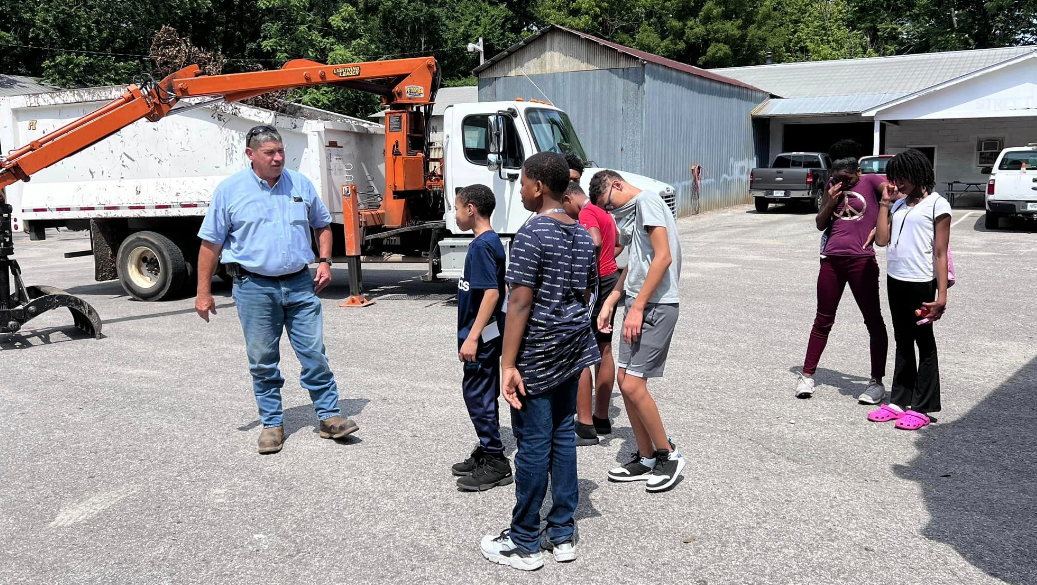
“We sit in municipal buildings all day making decisions for the future of our community and don’t often engage the very people we hope will be the future of our community,” she said. “They have so much insight to offer, and their thinking is next-level. We hope they will be engaged and contributing members of our community as they enter adulthood.”
“Engaging in open conversations with our youth allows elected leaders to understand the unique challenges and perspectives that younger generations face, fostering a sense of inclusion and belonging,” Rice said. “By actively listening to their ideas and concerns, leaders can ensure that policies are reflective of diverse needs and aspirations. This dialogue not only empowers young people to take ownership of their communities but also cultivates innovative solutions to pressing issues.”
Miller said the CMYC students have provided fresh perspectives, brought youth issues to the attention of city leaders, and contributed innovative ideas for projects.
“Providing this opportunity to young people is crucial because it encourages active citizenship and leadership from a young age,” she said. “Government leaders believe that by equipping students with the knowledge and skills to engage in local government, they are investing in the next generation of leaders who will shape the future of Columbia. It’s also a way to foster a sense of civic duty and pride in the community, ensuring that Columbia continues to thrive as a place where all voices are heard and valued.
“It’s crucial to involve students in understanding decision-making processes, public policy development, and community service initiatives,” Miller continued. “By engaging in these areas, students learn the importance of civic responsibility, strategic planning, and the complexities of balancing diverse community needs. Experiencing these aspects firsthand encourages them to think critically about issues that affect their community and to consider innovative solutions.
LOOKING TO THE FUTURE
For cities that want to bolster their own youth involvement, they need to find programs that are engaging and hands-on.
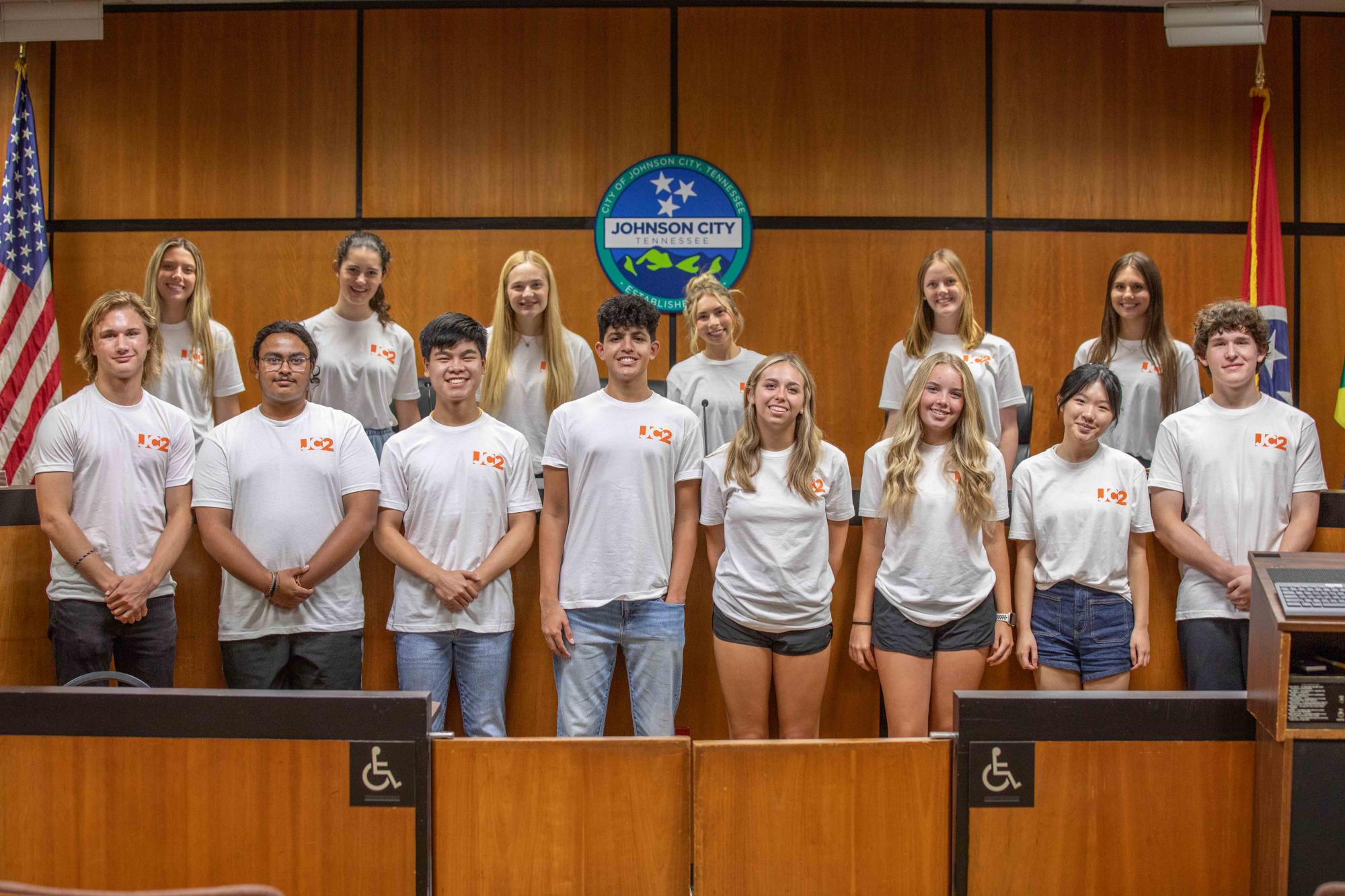
“It’s essential to create a structured program that offers meaningful engagement and direct interaction with city leaders,” Miller said. “Programs like the CMYC succeed because they provide students with hands-on experiences and real-world responsibilities that make them feel valued and empowered. Municipalities should focus on making these experiences relevant to the students' interests and provide them with opportunities to voice their ideas and see those ideas implemented in meaningful ways.”
Rice agreed that programs need to make youth participants feel like the community wants to invest in them.
“To foster greater youth involvement and education in government, municipalities should create engaging, hands-on programs that connect young people with local decision-makers, promote civic education in schools, and offer opportunities for youth to actively participate in community projects and governance processes,” she said. “Ultimately, fostering these connections secures a more resilient and forward-thinking future for our cities.”
Johnson City partnered with East Tennessee State University and the Roan Scholar program to help create a council that works for their needs and goals. Shoun advised getting non-government partners, like Young Professionals or a chamber youth leadership program, involved to find a model that helps with the workload and bridges generation gaps.
“We also are instilling in the council that – just like a city commission – significant projects take time,” Shoun said. “We want them to know that their vision will net tangible and impactful results in the future. That can be difficult in an immediate gratification world, but we think the service project will help with that.”
